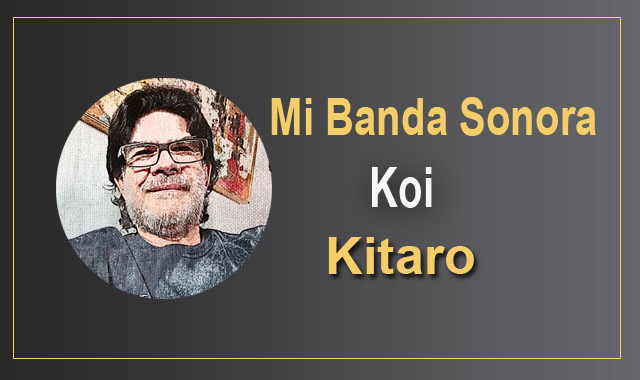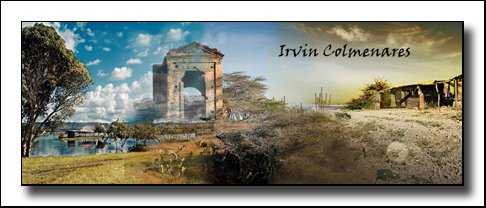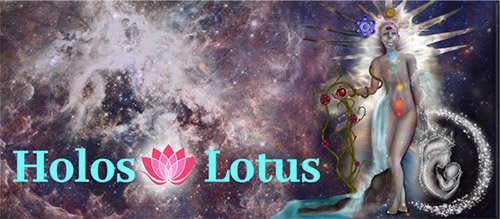Mi banda sonora. Koi | My soundtrack. Koi

La primera vez que escuché la palabra autismo fue a mediados de los ochenta. En ese entonces había llegado un compañero nuevo al liceo donde yo trabajaba en Mariara. Él era unos diez años mayor que yo, alto, poco conversador, y en su mirada se reflejaban los rasgos de alguien que había transitado los caminos del sufrimiento.
Los dos coincidíamos en la sala de profesores en una hora de tiempo muerto entre el turno de la mañana y el de la tarde. Creo que era los martes cuando yo tenía que cubrir un bloque horario en las primeras horas de la tarde y él uno en las últimas de la mañana.
En ese tiempo, era poco lo que se podía hacer. Yo aprovechaba para adelantar alguna corrección de pruebas pendientes, o preparar el contenido de alguna materia. A veces me llevaba algún libro de cuentos breves y los leía con bastante desgano.
El profesor recién llegado, por su parte, lo que hacía era escribir en un pequeño cuaderno escolar. Aquel hombre escribía y escribía sin cesar.
Un día me decidí importunarlo y le pregunté qué tanto escribía. Esperaba que me recriminara mi impertinencia, pero para mi sorpresa me miró fijamente y se sonrió. Me comentó que le gustaba escribir versos y me tendió el cuaderno.
Los textos en verdad que eran muy buenos, hablaban de temas intimistas, existenciales…el tipo de cosas que siempre ha tocado la mente de los hombres inquietos.
Luego de esa primera conversación nos fuimos haciendo amigos, nos tomábamos un café y yo le contaba cosas de mi día a día.
Una tarde le pregunté si había estudiado educación en la Universidad de Carabobo y me dijo que no, que lo había hecho en la cárcel.
Aquella respuesta me dejó sin palabras, no dije nada. Él entendió mi desasosiego y comenzó a explicar sin que yo lo pidiera.
Me dijo que había estado muy vinculado a las luchas guerrilleras de los años setenta, que había participado en muchas acciones violentas de las que no guardaba buenos recuerdos y que quizá no las volvería a repetir.
Como consecuencia de esas acciones había pagado una larga condena en una de las cárceles para presos políticos ubicada en Caracas. Fue en ese tiempo donde se metió en un régimen especial para los presos en el que podía estudiar una carrera universitaria. Él se decidió por Educación, al igual que su esposa que ya era docente en ejercicio.

Al poco tiempo de estar en la cárcel le nació una niña. Durante los primeros tiempos todo parecía normal. Sin embargo, al llegar a los dos o tres años, la esposa le comentó que algo no andaba bien con la niña, que parecía distraerse más de lo normal y que no se concentraba para las tareas sencillas como hacían los demás niños. La esposa tenía bastante experiencia con niños puesto que siempre había sido maestra de primaria.
Aquella noticia fue devastadora para él, estando preso no podía hacer nada para ayudar a la familia, más bien agregaba un problema más por las dificultades que le ocasionaba a su esposa viajar desde Valencia, la ciudad donde vivía, hasta Caracas donde estaba preso el esposo.
Con el correr del tiempo alguien determinó que la niña tenía una condición de autismo. Para aquel momento era poca la información que se tenía sobre el tema. Sin la existencia de internet no era fácil conseguir los recientes avances que se hacían sobre un problema que en nuestro tiempo es bastante conocido.
La esposa de mi amigo decidió tomar el toro por los cuernos y comenzó a buscar contactos con familiares de niños en igual condición. Fueron intercambiando contactos del personal de salud que los trataba y de ese modo fue naciendo una de las primeras asociaciones de autismo que se fundaron en Venezuela, hoy día la asociación recibe el nombre de Sovenia y es una ayuda fundamental para los niños con la condición del espectro autista.
En una de nuestras conversaciones mi amigo me comentó que la esposa había descubierto que cierto tipo de música le hacía mucho bien a la niña, la ayudaba a calmarse y le promovía la concentración.
Me dijo que uno de los preferidos de la niña era Kitaro, entonces me preguntó si lo conocía. Le dije que nunca lo había escuchado. Eso no es problema, dijo él. Me preguntó si tenía donde escuchar cassettes, le dije que sí. Lo primero que hice cuando recibí mi primer sueldo como profesor fue comprarme un equipo de sonido modular Pioneer, que incluía además del plato una doble cassetera.
A la semana siguiente mi amigo me regaló un cassette de Kitaro. A mi esposa y a mí aquella música nos impactó y desde entonces siempre la hemos escuchado en nuestra casa.
Años después de aquel descubrimiento de Kitaro nació mi hija menor. Desde muy pequeña la acostumbramos a dormir sola en su cuarto. Pero al llegar a los dos años comenzó a presentar problemas de insomnio, le costaba dormirse y se despertaba con frecuencia en horas de la madrugada.
Mi esposa y yo hacíamos guardia con ella una noche si y otra no para no ir los dos sonámbulos al trabajo.
En esas noches de insomnio lo único que lograba calmar a mi hija era la música de Kitaro. Antes de dormir yo le ponía algún CD del músico japonés y al poco tiempo lograba conciliar el sueño. Si se despertaba en la madrugada, igual. Afortunadamente a medida que fue creciendo su sueño se estabilizó completamente.
Kitaro es uno de esos genios natos. En varias entrevistas ha declarado que nunca estudió música, que todo está dentro de él y que desde que aprendió a tocar su primer instrumento, que fue la guitarra, la música le ha surgido de forma natural, como si le llegara del cielo. Quizá esa naturalidad hace que esa música sea tan especial.
Koi, el tema que les comparto hoy fue uno de los primeros que escuché de Kitaro. Forma parte de un álbum en el que el japonés se inspiró en mitos japoneses, son melodías que producen sensaciones evocadoras, que nos conectan con sonidos de otros tiempos. Este tema en particular tiene reminiscencias épicas. Cuando lo escucho siempre pienso en momentos de grandeza.
Es probable que en algún momento hayan escuchado la música de Kitaro, ha hecho composiciones para series y películas. Si no lo conocen los invito a que le presten atención.
Gracias por tu tiempo.


The first time I heard the word autism was in the mid-eighties. At that time, a new colleague had arrived at the high school where I worked in Mariara. He was about ten years older than me, tall, not very talkative, and his gaze reflected the features of someone who had walked the paths of suffering.
The two of us met in the teachers' lounge during an hour of downtime between the morning and afternoon shifts. I think it was on Tuesdays when I had to cover a time slot in the early afternoon and he one in the late morning.
During that time, there was little to do. I took advantage of it to get ahead on grading pending tests or preparing the content of a subject. Sometimes I would take a book of short stories and read them rather listlessly.
The newly arrived teacher, on the other hand, would write in a small school notebook. That man wrote and wrote incessantly.
One day I decided to pester him and asked him how much he wrote. I expected him to reprimand me for my impertinence, but to my surprise, he looked at me intently and smiled. He told me he liked to write poetry and handed me his notebook.
The texts were truly very good; they dealt with intimate, existential themes... the kind of things that have always touched the minds of restless men.
After that first conversation, we became friends. We would have coffee, and I would tell him about my daily life.
One afternoon, I asked him if he had studied education at the University of Carabobo, and he said no, that he had studied it in prison.
That answer left me speechless; I didn't say anything. He understood my unease and began to explain without my prompting.
He told me that he had been closely involved in the guerrilla struggles of the 1970s, that he had participated in many violent actions of which he had unpleasant memories and that he might not repeat them again.
As a result of these actions, he had served a long sentence in one of the prisons for political prisoners located in Caracas. It was during this time that he was placed in a special program for prisoners where he could pursue a university degree. He decided to major in education, as did his wife, who was already a practicing teacher.

Shortly after his incarceration, he had a baby girl. At first, everything seemed normal. However, when she was two or three years old, his wife told him that something was wrong with the child; she seemed more distracted than usual and wasn't concentrating on simple tasks like other children. His wife had considerable experience with children, having always been an elementary school teacher.
That news was devastating for him. Being in prison meant he couldn't do anything to help the family. In fact, it added another challenge due to the difficulties his wife faced traveling from Valencia, the city where she lived, to Caracas, where her husband was imprisoned.
Over time, someone determined that the girl had autism. At that time, there was little information on the subject. Without the internet, it wasn't easy to access the recent advances being made regarding a problem that is quite well-known today.
My friend's wife decided to take matters into her own hands and began looking for contacts with relatives of children with the same condition. They exchanged contacts with healthcare workers who treated them, and thus, one of the first autism associations founded in Venezuela was born. Today, the association is called Sovenia and is a fundamental support for children on the autism spectrum.
In one of our conversations, my friend told me that his wife had discovered that a certain type of music was very good for the girl; it helped calm her and encouraged her to concentrate.
He told me that one of the little girl's favorites was Kitaro, so he asked me if I'd heard of him. I told him I'd never heard of him. "That's not a problem," he said. He asked me if I had a place to listen to cassettes, and I said yes. The first thing I did when I received my first salary as a teacher was buy a Pioneer modular system, which included a turntable and a double-deck cassette deck.
The following week, my friend gave me a Kitaro cassette. That music had a profound impact on my wife and me, and we've always listened to it in our house ever since.
Years after discovering Kitaro, my youngest daughter was born. From a very young age, we taught her to sleep alone in her room. But when she turned two, she began to experience insomnia; she had trouble falling asleep and would often wake up in the early hours of the morning.
My wife and I would stand guard with her every other night so we wouldn't both sleepwalk to work.
During those sleepless nights, the only thing that managed to calm my daughter was Kitaro's music. Before bed, I'd put on a CD by the Japanese musician, and he'd soon fall asleep. Even if he woke up in the middle of the night, it was the same. Fortunately, as he grew older, his sleep stabilized completely.
Kitaro is one of those natural geniuses. In several interviews, he has stated that he never studied music, that it's all within him, and that ever since he learned to play his first instrument, the guitar, music has come naturally to him, as if it had come from heaven. Perhaps this naturalness is what makes his music so special.
"Koi," the song I'm sharing with you today, was one of the first I heard from Kitaro. It's part of an album in which the Japanese artist was inspired by Japanese myths. The melodies produce evocative sensations, connecting us with sounds from bygone times. This song in particular has epic reminiscences. When I listen to it, I always think of moments of greatness.
You've probably heard Kitaro's music at some point; he's composed compositions for TV series and films. If you're not familiar with it, I invite you to pay attention.
Thank you for your time.
Translated with Goggle translator.








Comunidad Be Entrepreneur

Do you want to get involved? Do you want to support music and this project? Follow us to keep you updated and read our Introduction post!
🎶 Join us on our Discord Server! 🎵
Excelente post amigo, me di un banquete de aprendizaje, no conocía a ese musico japonés, pero si las melodías en comiquitas las escuche en algún momento, lo del profesor que estudio en la cárcel me sorprendió mucho, desconocía de ese tipo de programa carcelario. Y que bueno que fue de ayuda para tu hija.
Me alegra que te haya gustado la publicación. Kitaro es un gran músico. Lo escucho con frecuencia. Gracias por pasar y comentar estimado @leanpoqui. Un fuerte abrazo desde Maracay.